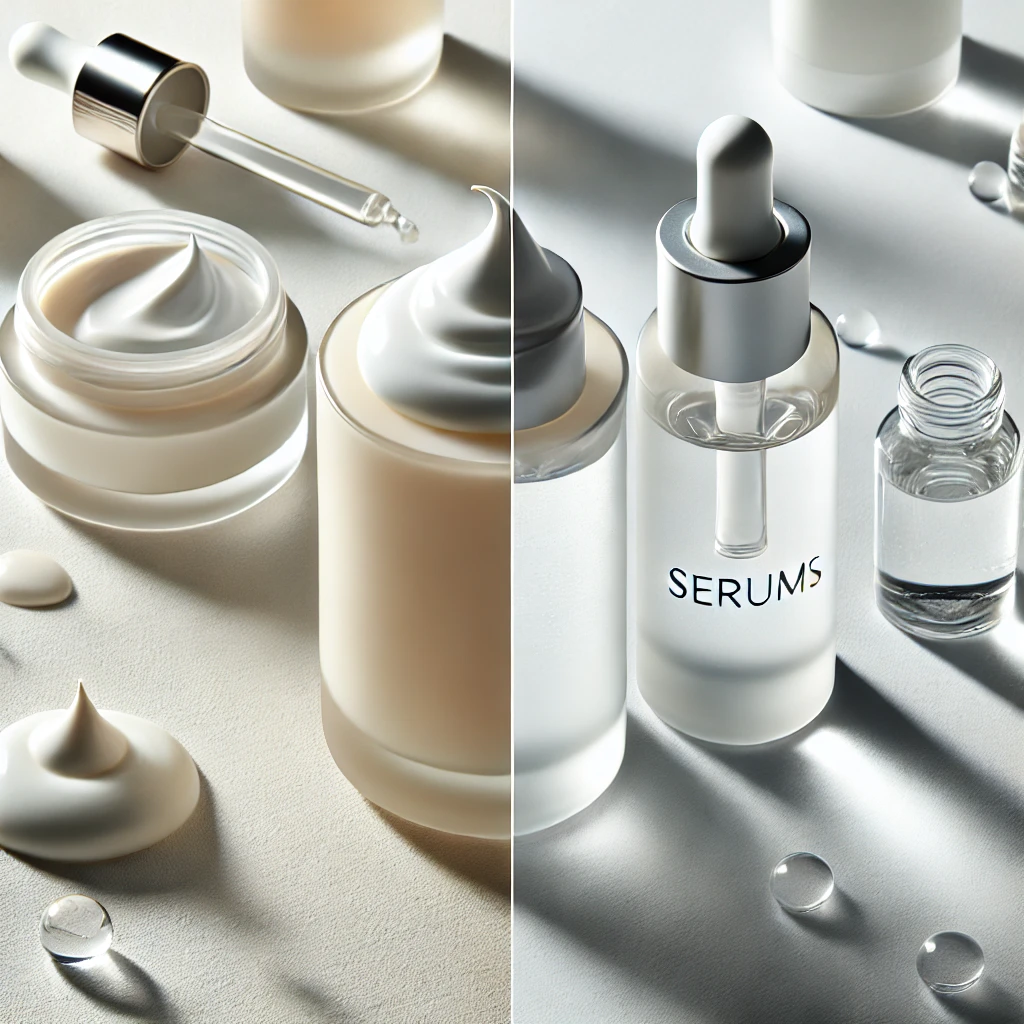1. What Are Moisturizers?
Skincare products called moisturizers are made to hydrate the skin and seal in moisture by forming a protective layer on its surface. They are available in different forms, including lotions, gels, and creams, each appropriate for a particular type of skin. Using moisturizers will help you maintain smooth, hydrated, and soft skin. They function by stopping the loss of water, especially in cases where the skin is sensitive or dry. Important components of moisturizers include hyaluronic acid, glycerin, and ceramides because they aid in drawing and holding moisture to the skin. For everyday use, moisturizers are especially helpful because they maintain the skin’s equilibrium and shield it from outside elements like pollution and severe weather.
2. What Are Serums?
Serums are thin, quickly absorbing liquids that are meant to penetrate the skin deeply with concentrated active ingredients. While moisturizers concentrate on providing moisture, serums address particular issues with the skin, such as wrinkles, dark spots, acne, and fine lines. They are brimming with potent components that help to enhance the overall look of the skin, such as retinol, vitamin C, peptides, or antioxidants. Serums are useful for treating underlying skin conditions because of their thinner consistency, which allows them to penetrate deeper into the skin’s layers. Although serums aren’t meant to take the place of moisturizers, they do enhance your skincare regimen by providing hydration along with benefits based on treatments.
3. Which One Should You Use First?
In a comprehensive skincare regimen, both serums and moisturizers have a role, but knowing when to use each is crucial. Because of their deeper penetration into the skin and lighter consistency, serums should always be applied before moisturizers. To address particular issues, apply the serum first on your face after cleansing and toning. After the serum has been absorbed, moisturizing the skin’s outer layers and sealing in the active ingredients of the serum is achieved by using a moisturizer. The best of both worlds—treatment from the serum and hydration from the moisturizer—are applied to your skin thanks to this combination.
4. How to Choose Between a Serum and a Moisturizer
Depending on what your skin needs, you can decide between using a moisturizer and a serum. A moisturizer is necessary if you suffer from dryness, dehydration, or if you need protection on a regular basis. A serum, on the other hand, can offer more targeted treatment if your concerns are related to acne, hyperpigmentation, or aging. Often, the best way to keep skin healthy is to use both a moisturizer and a serum. If you have oily or acne-prone skin, you might want to use a serum that targets your particular skin concerns in addition to a lightweight, non-greasy moisturizer. You can design a successful skincare regimen that is specific to your needs by striking a balance between the two.
